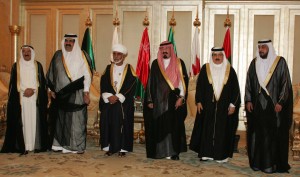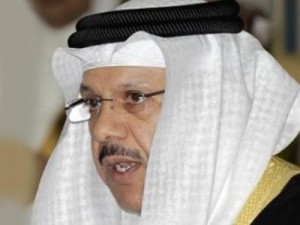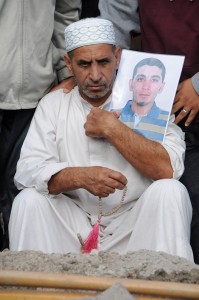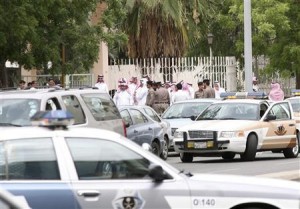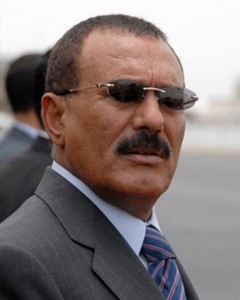Cable dated:2008-06-03T15:39:00C O N F I D E N T I A L SECTION 01 OF 04 RIYADH 000868SIPDISNEA FOR DAS GGRAY DEPT OF ENERGY PASS TO A/S KKOLEVAR, DAS AHEGBERG, AND MWILLIAMSON TREASURY PASS TO A/S CLOWERY, DAS BAUKOL AND CMORAVEC DHS PASS TO TWARRICK AND DGRANT CIA PASS TO TCOYNEE.O. 12958: DECL: 06/03/2018 TAGS: EPET ENERG EFIN SA
——-
Summary
——-
¶1. (C) Minister Naimi’s offer of an additional 300,000 barrels per day (bpd) in the wake of President Bush’s visit had minimal impact on crude prices; some analysts stated 500,000 bpd-plus would be needed to impact crude prices near $128/barrel. Market analysts in Riyadh point out widespread petrol subsidies in China, India, and the Middle East ensure price feedback mechanisms are broken; they therefore predict crude demand will continue to rise there. Governments are abandoning plans to roll back petrol subsidies in the face of escalating food inflation. Our contacts are concerned languishing refining margins are driving down refinery utilization. Recession may be the one brake on crude prices in the near term, but our contacts are divided on its impact. Their crude price forecasts range between $90 and $150/barrel.
——————————————-
Saudis Resist Continued Requests for Significantly More Production ——————————————-
¶2. (C) The oil industry newsletter “Foreign Reports” summed up the industry’s take-way from the President’s recent visit: “Responding to demand, not demands - The message from Riyadh this afternoon may be summed up: Saudi Arabia can and will respond to increased demand from its refining customers by increasing its production, but it will not respond to politically-motivated calls for more oil.” Minister Naimi was careful to point to customer requests to justify his announcement of a increase in production of 300,000 bpd. The increase should bring Saudi Arabia’s June production to 9.45 million bpd. By Monday, OPEC price hawks, Libyan oil official Shukri Ghanem among them, jumped in to criticize Minister Naimi’s decision “to cave in to requests from the U.S.”
———————-
Is this Market Broken?
———————-
¶3. (C) Here in Riyadh, our banking sector contacts are focused more on long-term market disequilibirium. Like energy economists worldwide, they are scratching their heads, asking how we can slow this spiral of escalating crude prices. Brad Bourland, Chief Economist, and Paul Gamble, Head of Research from Jadwa Investments, one of the newly-established Saudi investment banking houses, are concerned the price feedback loop between crude and finished petroleum products is increasingly tenuous globally. Bourland points to analysis by Deutschebank’s Adam Siminsky, who posits a growing disconnect between the crude and finished product markets.
¶4. (C) Bourland explains while crude has increased by nearly 6 times in the last four years, gasoline prices in the U.S. have at most tripled. While consumers complain vociferously about rising pump prices, nonetheless they are not absorbing the full brunt of rising input prices. The refining sector is absorbing the growing pricing differentials between crude and finished products, leading to plummeting refining utilization rates in the U.S. For example, refining utilization rates fell to 84 percent in the U.S. recently. Bourland noted the U.S. majors would continue to operate their vertically-integrated refineries - as they have little choice but to move their crude through the
RIYADH 00000868 002 OF 004
system. However, under these price conditions, independent refiners operate in the red, and many are simply idling their capacity. The Petroleum Economist confirmed that in March, many refiners ran at a loss.
——————————————-
Poor Price Elasticity in China, India, ME: Food Price Inflation is a New Complication
——————————————-
¶5. (C) Bourland noted that given the widespread public subsidies in China, India, and the rapidly growing markets of the Middle East, there is no pass-through of these higher crude prices to the consumer in much of the world’s market. Essentially there is no price signaling, “go slow” sign in the form of higher prices for consumers as crude rises. As a result, he expects we will continue to see unrestrained demand growth, especially in the Middle East and China.
¶6. (C) Bourland was not optimistic about prospects for encouraging greater price elasticity in the world energy markets. Inflation, particularly food inflation, recently has become a front-burner issue for many nations. Pressed consumers in many nations have recently found themselves on a knife’s edge regarding food security, and are not likely to peacefully accept the rolling back of petrol subsidies which have become effectively institutionalized. Bourland also cautioned that Saudi Arabia’s domestic consumption of crude continues to grow by about 100,00 bpd annually, ensuring a tight global market for the foreseeable future.
——————————————-
U.S. Market Demonstrates Elasticity, but Price Responses in Europe also Limited
———————————————
¶7. (C) Bourland believes the U.S. market is demonstrating some price elasticity in the downstream market, and this is beginning to curb consumption. In the U.S., pump prices are rising sharply. He noted gasoline in Connecticut, for example, had hit $4.50/ gallon. Gamble, a British citizen, noted that in Europe, the pump price is heavily weighted towards the government’s tax take, so the impact of rising crude prices is felt much more slowly. Consumer response in Europe is also correspondingly slower. Europe’s ability to respond with transport measures that might have a near-term impact on per capita fuel consumption is also limited, as most people already take public transportation or drive fuel efficient cars.
———————————-
IEA Pessimistic on Prospects for Greater Price Elasticity ———————————-
¶8. (C) Energy Attache queried Dr. Nobuo Tanaka, the Executive Director of the International Energy Agency, during a recent presentation at the International Energy Forum in Riyadh about the prospects for introducing greater price elasticity in the global market. Specifically, in November 2007, China had announced it would begin rolling back subsidies. Dr. Tanaka indicated that the harsh winter weather and the associated transportation problems at the Chinese New Year had largely halted roll-out of China’s program. He was not optimistic about other large developing nations following suit with new roll-backs. In light of the recent tragic earthquake in Sichuan, it is likely China will be in no position to force a politically unpopular subsidy roll-back on the population now.
—————————————-
Jadwa Forecasts $90 Barrel Oil for 2008; SABB Forecasts $150 —————————————-
RIYADH 00000868 003 OF 004
¶9. (SBU) Looking forward, Jadwa Investments forecasts an average price of $90/barrel for oil 2008, with a drop to $70/barrel by the end of 2008. Jadwa forsees a constant monthly downward trend in demand, due to the U.S. economic recession and its impact on the global economy. Bourland noted Jadwa’s analyses departed from DeutscheBank’s forecast of an average barrel of $105 for 2008. On the other hand, Dr. John Sfakiankis, from the Saudi British Bank, an HSBC subsidiary, remarks that the U.S. is already in recession, and crude prices nonetheless continue to rise. He predicts crude prices topping $150/barrel “are not unlikely” by the end of the summer.
—————————————-
$15 Billion/Month into Official Reserves
—————————————-
¶10. (C) Bourland estimates the Saudi state is earning roughly $1 billion/day now in oil revenues, of which it expends roughly half, and adds the other half to its official reserves. He noted SAMA added $15 billion to its reserves in March, the seventh month running that reserve additions totaled more than $10 billion. “The amounts are overwhelming,” Bourland summarized. He also explained that although the Saudi Arabian Monetary Authority (SAMA), the central bank, continued to hold U.S. Treasury bills, it was also diversifying. SAMA’s Investment Department “prides themselves on being diversified,” he related.
—————————————-
Dollars: The Unloved Currency as Saudis Wait for a Possible Re-Valuation —————————————-
¶11. (C) This enormous influx of petro-dollars is largely held by SAMA. Bourland explained that Saudi investors, however, are currently hoarding riyals. They continue to be afraid of being caught out by a possible re-valuation in the USD-pegged currency. He noted investors continue to anticipate an eventual re-valuation, but “the pressure is not like it was last fall” when the fixed exchange rate came under heavy speculative attack in November. Instead, Bourland sees Saudis hoarding riyals because the “U.S. markets would go on sale” if the Saudi government re-values. Bourland pointed out it was difficult for Saudi investors to even find large quantities of U.S. dollars, saying “it’s hard to get $500 million or $1 billion in USD, the banks don’t want to hold that much.” Bourland stated he does not see much Saudi money involved in hedge funds or other speculative instruments allegedly running up crude prices.
———————————-
“The Money is Safer in the Ground”
———————————-
¶12. (C) Bourland noted that the confluence of demands to manage this enormous cash flow, and the challenges to managing growth in the oil sector were beginning to worry the Saudi leadership. He referenced recent comments from an informed source in the oil sector who explained that Saudi Aramco was scaling back proposed future expansion plans. Quoting King Abdullah’s recent comments (ref B) that Saudi Arabia would cap production capacity at 12.5 million bpd and “leave crude in the ground for its children”, Bourland remarked, “There are more accidents, there are escalating costs (in the oil sector). I think the King is reaching the conclusion that the money is safer in the ground than in the bank. He doesn’t want to see it squandered.”
———————————
Saudi MinPet: “Blame it on the Weak Dollar”
———————————
¶13. (C) The Saudi Ministry of Petroleum has noted to us in
RIYADH 00000868 004 OF 004
consultations throughout 2007 and in January 2008 that much of the run-up of the price of crude could be blamed on the gradual decline in the USD, as crude contracts are priced in dollars. We concur to a certain extent, but as crude has surged beyond $110/barrel, and the dollar seems to have found a bit of a floor in recent weeks, we find this argument less compelling. As well, crude priced in euros and yen has also surged to new record highs in recent weeks. Taking inflation into account is another issue. The Economist noted in April that crude would have to hit $134/barrel to equal in inflation-adjusted terms 1981’s record crude prices. Two weeks ago, the NYMEX market did just that.
———
Comment
———
¶14. (C) Our Mission now questions how much the Saudis can now substantively influence the crude markets over the long term. Clearly they can drive prices up, but we question whether they any longer have the power to drive prices down for a prolonged period. The May announcement of a 300,000 bpd increase in production barely dented price escalation. It appears unlikely Saudi Aramco could muster the million or more barrels which appear to be needed to make a dent in the normally upwards price trajectory. Saudi Aramco’s ability to sustain such a production increase for a year or more raises serious questions. A series of major project delays and accidents XXXXXXXXXXXX over the last couple of years is evidence that Saudi Aramco is having to run harder to stay in place - to replace the decline in existing production. Additional production would likely come from increasingly heavy crude which the world lacks sufficient capacity to easily refine. The Saudis appear dis-inclined to discount its heavy crude sufficiently, so the market is dis-inclined to purchase it. In neighboring Iran, the regime is now purchasing floating storage for heavy crude which has no takers. While this Mission is far from embracing doomsday “Peak Oil” theorists, Saudi Aramco’s challenges are significant.
¶15. (C) King Abdullah’s recent comments on “leaving some oil in the ground” did not set new oil production policy, but hewed to the previous Saudi commitments to build a capacity of 12.5 million bpd. Nonetheless, his remarks may hint at an emerging conservationist ethic in Saudi Arabia — extending beyond energy to encompass how the Kingdom will more broadly husband its resources for future generations. Bourland highlights the King’s concerns with energy issues, but also his growing worries with how his successors will manage and secure the Kingdom’s financial patrimony as well.
GFOELLER
……………..
Reference ID: 08RIYADH868
Created: 2008-06-03 15:03



